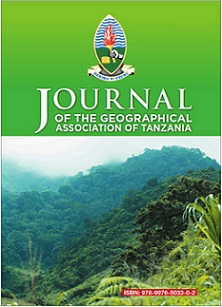determinants of risk Factors associated to Pregnancy and delivery in Maasai Community in Kiteto district, Tanzania
Abstract
The objective of this study was to determine risk factors associated to pregnancy and delivery. Thepurpose was to find out whether danger signs during pregnancy and delivery motivate the respondents
to attend and seek for maternal health services. The study employed cross-sectional research design
in four villages in Kiteto District namely Partimbo, Kimana, Engusero and Ngipa to find out the
determinants of risk factors associated to pregnancy and delivery.
The study employed a three stage sampling technique. A simple random sampling technique was used
to identify wards in the first stage. In second stage, four villages were purposively selected from two
different wards. In third stage, households as a unit of analysis were obtained through random sampling,
since the population was homogenous. However, in order to get population sample within each village,
probability proportional to size (PPS) was applied.
Cross tabulation and Chi-square were tested to determine the association of the variables and factors
influencing maternal health utilization. The findings showed that 53 percent of the respondents were
aware of danger signs associated with pregnancy and delivery. About 87 percent delivered at home
due to various reasons mentioned like distance and transport costs. Also from the findings majority of
the respondents by 64.6 percent suffered from anemia during the first pregnancy. However, the level
of antenatal clinic visits was not significantly correlated with any other socio-demographic variables,
but place of delivery and assistance during delivery showed a significant association with socio-
demographic variables (p < 0.005).
Indeed, a lot could be gained by simple prevention, in particular regular antenatal visits, vaccinations,
and quick referral in case of complications. Also TBAs should be taken as part of RCH in these pastoralist
communities because of their cultural believes. Regular training and seminars should be conducted so
as to help mothers in those remote areas.
Downloads
Published
2017-05-24
Issue
Section
Articles


